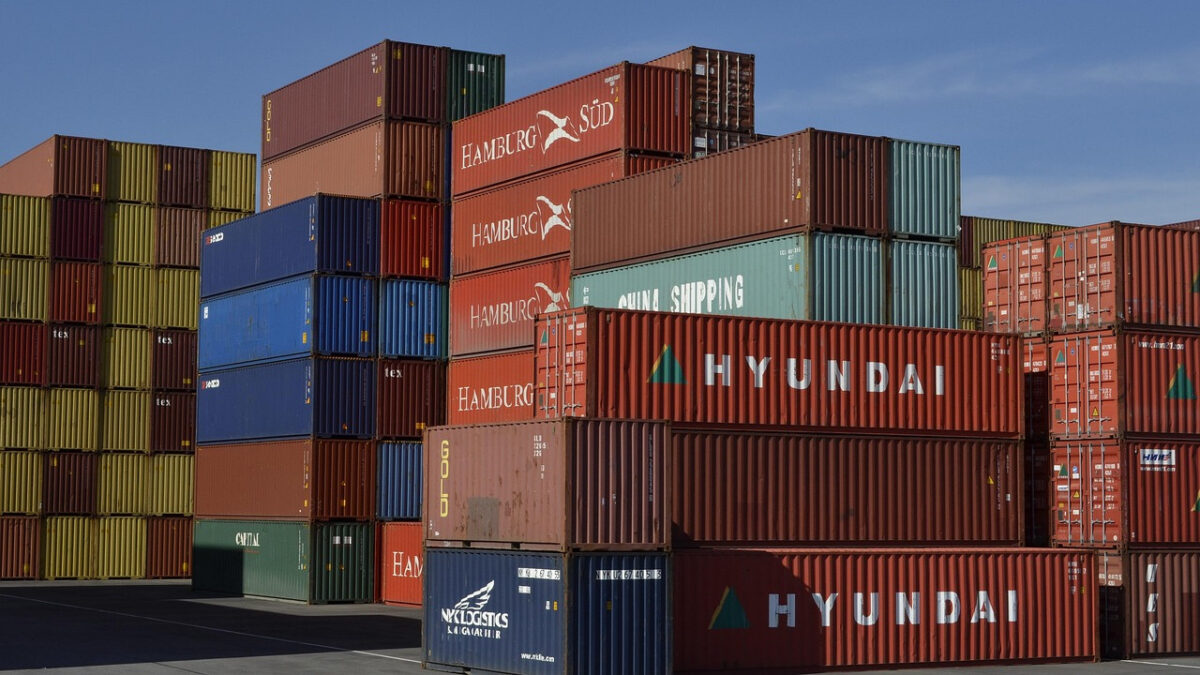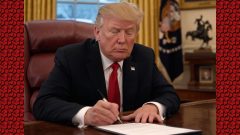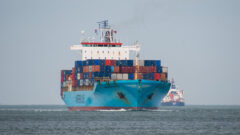Depending on who you listen to, tariffs are good, or tariffs are bad. Tariffs will make us rich, or tariffs will make us poor. Tariffs are terrific, or tariffs are terrible. Where people stand on tariffs mostly depends on where they stand on Donald Trump.
The heart of the matter is not so much tariffs themselves, but the objective of making US products competitive with imports and thereby preserving US manufacturing and jobs.
There’s a lot of minutiae that can obscure the bigger picture. We can be kept so busy arguing over partisan talking points that we ignore overarching principles. However, there are fundamentals essential to an intelligent understanding of the matter.
Tariffs
Tariffs are a tax on imports. The idea is to tax imported goods at a rate calculated to make them as expensive to consumers, or more so, than their domestically produced counterparts. When that happens, American-made products can “compete” with imports. Consumers will then purchase US products, creating a demand for production and thus preserving, or even creating, jobs.
However, this means higher prices for consumers, and higher prices mean consumers will not be able to purchase as many goods. That means less overall consumption, which means less overall production.
With tariffs, there is an upside of making American products competitive and thus preserving jobs, but there’s a downside of making those products more expensive and decreasing consumption. In other words, there’s no free lunch.
CONSTITUTIONAL NOTE: According to the US Constitution, “All Bills for raising Revenue shall originate in the House of Representatives.” As tariffs raise revenues, they must be introduced as a bill in the US House. Yes, President Trump is invoking the International Emergency Economic Powers Act, but 1) Congress may not by legislation re-delegate powers to the President assigned to it by the Constitution, as that would require a Constitutional amendment, and 2) The continuation of what has been the economic status quo for decades does not constitute an emergency (“a sudden, urgent, usually unexpected occurrence”).
Subsidies
I recently heard someone praising President Biden for giving subsidies to certain US industries and the subsequent rise in US manufacturing. The idea of subsidies is actually the same as tariffs, that of making US products competitive with imports.
By giving subsidies to manufacturers, products can be sold for less than the cost of production. This benefits consumers who pay lower prices previously associated with imported goods while employing American workers.
However, subsidies don’t just grow on trees. Subsidies are real money taken from real taxpayers and redistributed to various industries as the government sees fit.
With subsidies, products cost less, but the people purchasing the products are taxed more and are left with less money to purchase the products with.
As a mathematical principle, tariffs and subsidies are a wash. Both level the playing field between domestic and foreign products at the expense of we the people, either by increased prices or increased taxes. In other words, there’s still no free lunch.
CONSTITUTIONAL NOTE: Article I, Section 8 of the US Constitution enumerates the powers delegated to Congress, and Article II defines the powers of the President. Neither authorizes the redistribution of taxpayer funds to various businesses and industries. All subsidies are a usurpation of power not delegated by we the people and are therefore as unlawful as the President imposing tariffs without a vote of Congress.
Regulatory Costs
Something I have not heard discussed in the tariff and trade debate is the cost to American businesses of complying with government-imposed rules and regulations. This includes environmental regulations, safety regulations, employee benefits, healthcare, etc., anything required by the government, or required by a union that is required by the government. The question is, what is the cost to US producers of complying with government rules and regulations as compared to that borne by businesses operating in other countries?
It’s possible that simply eliminating all of the government regulations would enable US products to compete with foreign goods. I’m not recommending that we go back to the good old days of child labor and rivers catching fire. However, the cost of complying with government regulations must be made a part of any honest debate on tariffs, trade, and making US products competitive.
Trade Deficit
A trade deficit (more dollars flowing out of the country than in) can be the product of a country spending down its wealth or of printing fiat currency.
Since the US went off the gold standard in the 1970s, the Federal Reserve has steadily increased the money supply, printing dollars faster than the increase in the population. This means more money can flow overseas to purchase imports each year, while the same number of people retain the same number of dollars at home. Unsurprisingly, the trade deficit began in the 1970s and has increased right along with the money supply.
By printing fiat currency, a trade deficit can be maintained seemingly indefinitely, making it look like a free lunch. However, this inflation of the money supply devalues the currency, causing price inflation because there really is no free lunch.
Free Trade and Creative Destruction
Free trade is what we practice here in America every day. It’s when we go to the store of our choice and purchase the products of our choice without anyone manipulating the prices. If a store charges more than we want to pay, it goes out of business. On the other hand, demand for higher-quality goods might give rise to a new store in town where we’re willing to pay higher prices for superior products. This is free trade, and it brings about what some call “creative destruction.”
When new products are invented, manufacturing methods are improved, or production costs are lowered, the new, better, or cheaper products will prevail, and the previous products will be discontinued. The creation of the new products, factories, and jobs means the destruction of the old. The only alternative to this cycle of creation and destruction is stagnation.
This is the story of human history and is why archaeologists unearth lost cities in Egypt and tourists visit ghost towns in the American West. Changing weather, changing trade routes, and changing technology have always meant the creation of new jobs and industries at the expense of the old.
If we really want to preserve every US job and industry, we would apply tariffs to keep Chinese cell phones out of America and grant subsidies to keep Americans employed at the last rotary dial phone factory somewhere in Tennessee. However, Americans apparently value their cell phones enough to consider creative destruction worth the cost.
The thing I regret about creative destruction is that we as a society have not done a better job of helping displaced workers recognize and train for new careers in different places.
So, we’re left with a choice between steel workers in the Rust Belt forfeiting their jobs, or the rest of America forfeiting the dream of two cars in every garage as tariffs would drive steel prices too high. Either way, there’s no free lunch.
Zero-Sum Thinking vs the Power to Increase
A problem that plagues us in matters of trade and economy is zero-sum thinking – the idea that for one to win, another must lose. While that may apply in sports, it doesn’t hold in matters of economy, prosperity, and wealth.
Man is the one creature in God’s creation empowered to invent, create, and produce an increase. All the animals live hand to mouth, so to speak. Man alone can produce more than we consume and accumulate a reserve of what we call wealth, or capital.
Trade should not be viewed as a zero-sum game in which America has to keep other nations poor to be rich.
If you’re in the lawn mowing business, do you want your neighbors – the carpenter, butcher, hairdresser, etc – to be kept poor, or do you want to engage in generous trade with them until they all become successful enough to hire you to mow their lawn?
There are those in this and previous administrations who advocate a policy of keeping other nations poor so they can be controlled and exploited to keep America rich and powerful. This is contrary to God’s law of love and the instruction to do unto others as we would have them do to us. Such a strategy would keep other nations too poor to purchase any sizable quantity of American-made goods. What if India were to prosper to the point that everyone there wanted the status symbol of driving an American-made pickup truck? We would have to open the borders to let in enough workers to fill the demand.
God is the God of increase, and He designed man for increase. However, when Satan gets our eyes off God, we lose sight of the potential for increase. Satan then convinces us that we live in a closed system of limited goods and resources where there can only be winners and losers in a zero-sum game played to the death through both wars and trade wars.
So long as we produce more than we consume, we can increase in wealth, both individually and as a nation. However, to the extent we let lust drive us to consume more than we produce, we will be impoverished, both individually and as a nation. Our current rate of both personal and national debt indicates that lust has indeed driven us to consume more than we produce, and neither tariffs nor subsidies can save us from that.
America’s true hope for prosperity is in the God of increase and in determining, both individually and as a nation, to consume less than what God empowers us to produce. As we prosper and increase, we can trade with others who can also prosper and increase until all ships rise with the tide. It’s that or factor God out of the equation, see a closed system of limited resources, and start cutting throats.







One reply on “Tariffs and Trade – There’s No Free Lunch”
very thoughtful article – well done